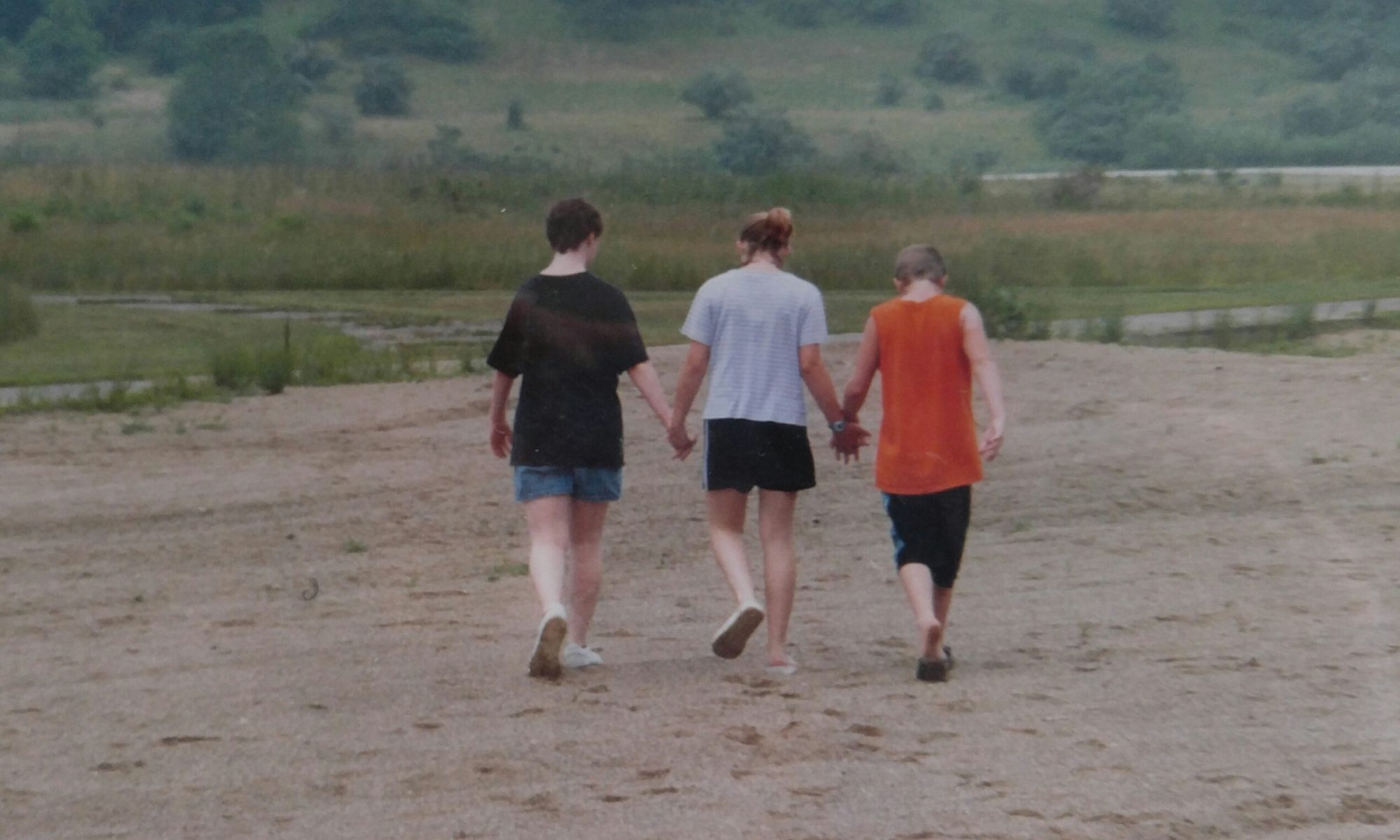
Have you ever noticed how people (and I do it, too, at times) always think about what they can’t do or have instead of focusing on what they do have? And when we have children with autism that becomes an even bigger issue.
Parents compare their children to other children. My child can’t talk. My child can’t eat many things. My child can’t tie his shoes. My child can’t ride a bike. My child can’t write neatly. Can’t… can’t… can’t. And even worse, the child may hear all of this negativity – how would that make you feel if you heard every thing you can’t do listed for anyone who would listen?
Jen can’t sing. She can’t (actually, it’s more like won’t 🙂 ) cook fabulous meals. She can’t change a tire (again, more like I won’t! 🙂 ) She can’t fix the car. She is stubborn. She is impatient. She has a temper. Blah Blah Blah….
I can write all of that and not care, but if I overheard someone saying negative things about me, it would hurt. (Unless, of course, it was someone whose opinion didn’t matter to me 🙂 ) Imagine hearing things about yourself – and not being able to defend yourself or tell anyone that the words hurt. Now imagine you are a child who can’t.
And this is why we have to focus on what our kids can do and not what they can’t! And we have to be careful how we talk around them. They are always listening, even if it seems like they aren’t. (I’ve learned that the hard way – never try to plan surprises with Casey or Rob in the house – I don’t care what room they are in!)
Rob can’t tie his shoes. But he can get clothes from the dryer. He can bring the trashcan back from the street (honestly, it wasn’t too long ago that I couldn’t let him get that close to the street as he would dart away!). He can fold his clothes and he can design the most amazing things with his Legos.
Casey can’t wash her hair. But she folds laundry. She draws beautiful pictures. She sings like an angel. She can sit on the patio by herself. (again, when she was little, I didn’t dare let her out of my sight, let alone in the yard by herself!)
Besides, when you only focus on what is missing, you don’t see the positives. You drag yourself down into a hole – and take your child with you. Trust me – I know there are many days that finding something positive is as hard as finding a needle in a haystack. There will always be days like that – just don’t let yourself think only of negative. Remember that better days are always coming. (I sound like a Hallmark movie, don’t I? 🙂 )
I think every meeting about our kids should start with a list of the amazing things they can do before getting into the negative stuff. I was lucky that most of the teachers my kids had did this and it really helped me to hear that not everything was going badly. It helped me to hear that the teachers were proud of the progress, no matter how little, they had made. For every teacher reading this – please, take a few minutes and do this in IEP meetings. Help the parents remember how special their child is – they are already well aware of their child’s deficits.
Focus on every small step forward – every “can”… every time your child tries a new food – or just looks at it. When your child can put his shoes on – even if they are on the wrong feet – it’s progress! When your child can sign “yes” even if verbally, it’s still difficult. When your child calms down before a full blown meltdown. When your child can sit in a loud restaurant for a few minutes. It’s all steps forward to a future no one can predict. Celebrate every step!
Who would have thought that the child who put her head through three windows during meltdowns would be almost off her meds now? Who would have thought that the child who refused to even look at new foods is now willing to try them? Who would have thought that the child who screamed in pain at many sounds now only rarely puts her finger in her ear to block out noise? Who would have thought that the child who constantly darted away would ever walk in stores by himself?
Small steps forward and lots of “look at what they can do!” thinking. Sure, I have times that “can’ts” are in my head, but usually, I’m tired or stressed about something else and the last thing I feel like dealing with is autism. It took a long time for me to stop focusing on the can’t and start looking at the can. You can do it, too!
Because if we don’t have faith and hope for our children, who will?
